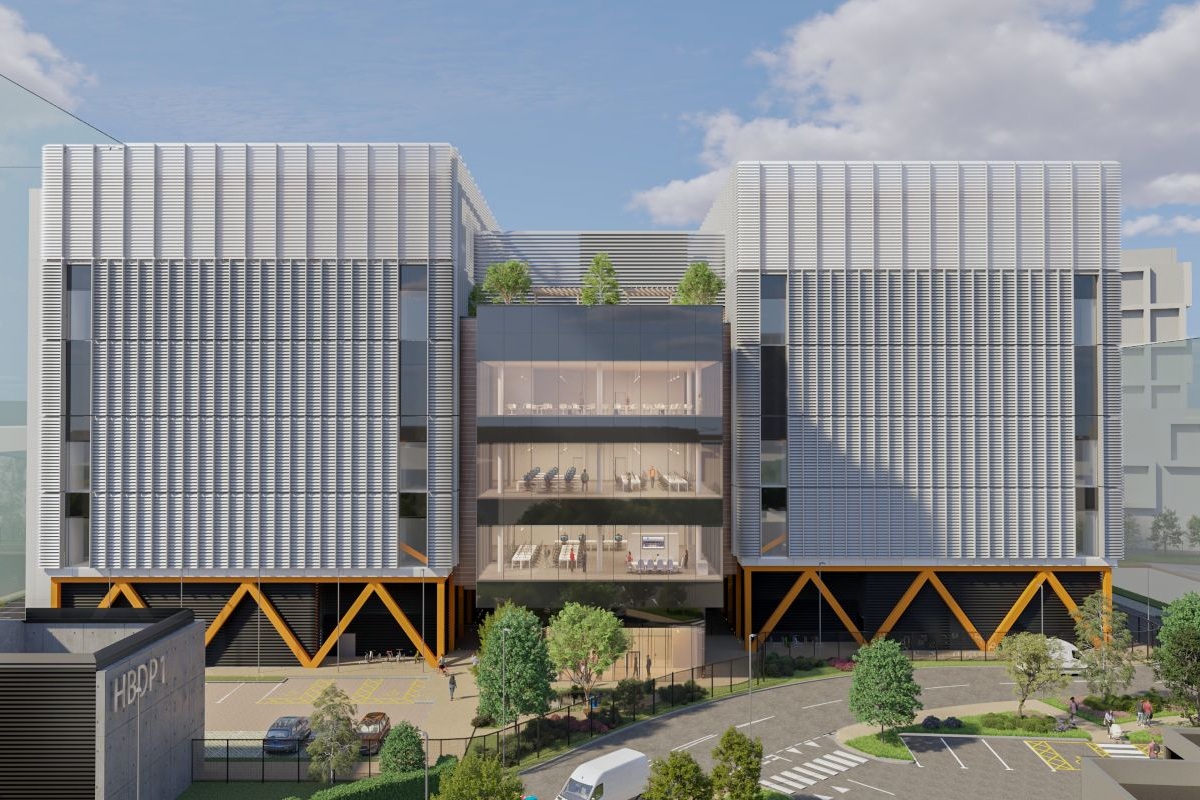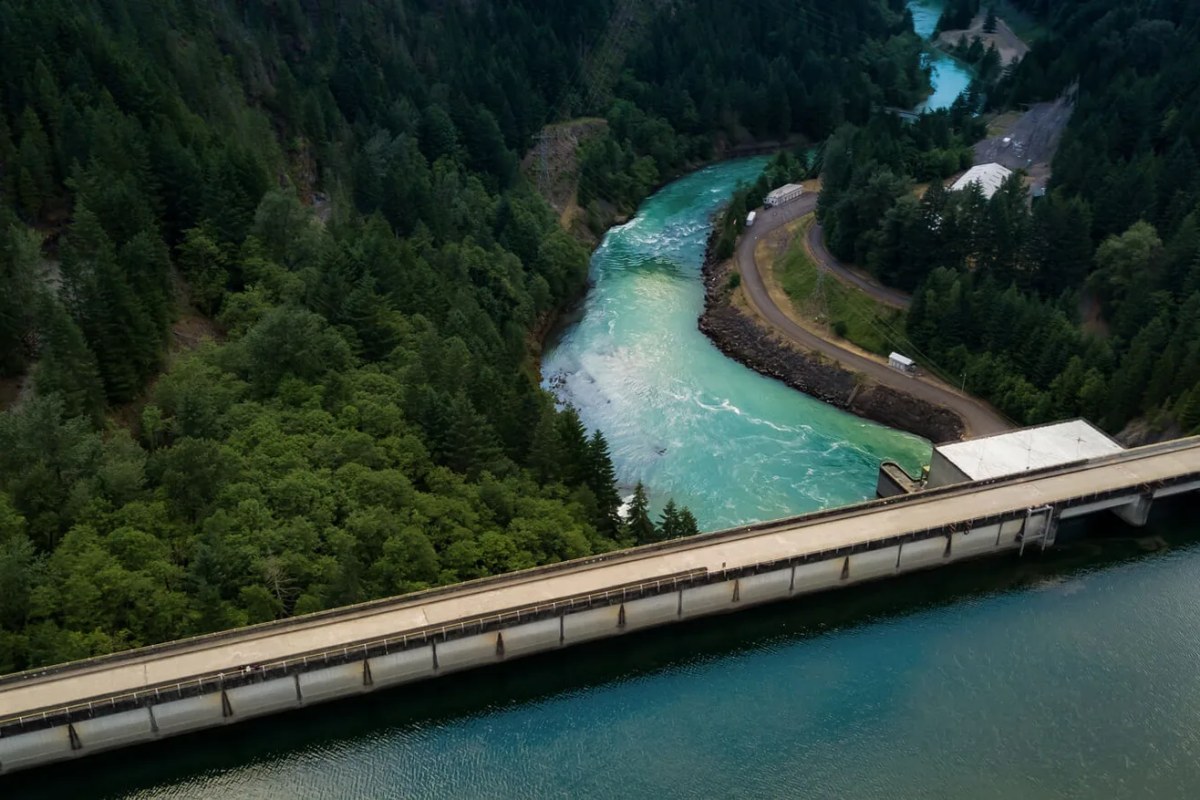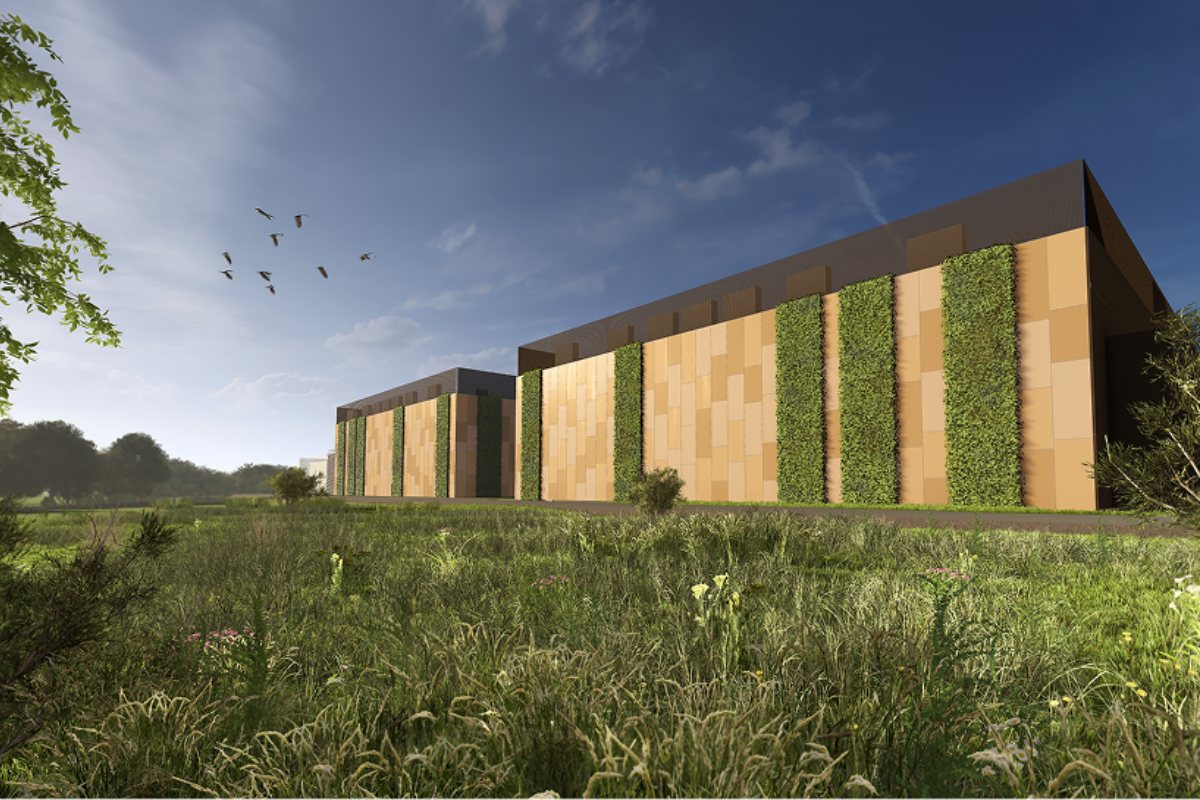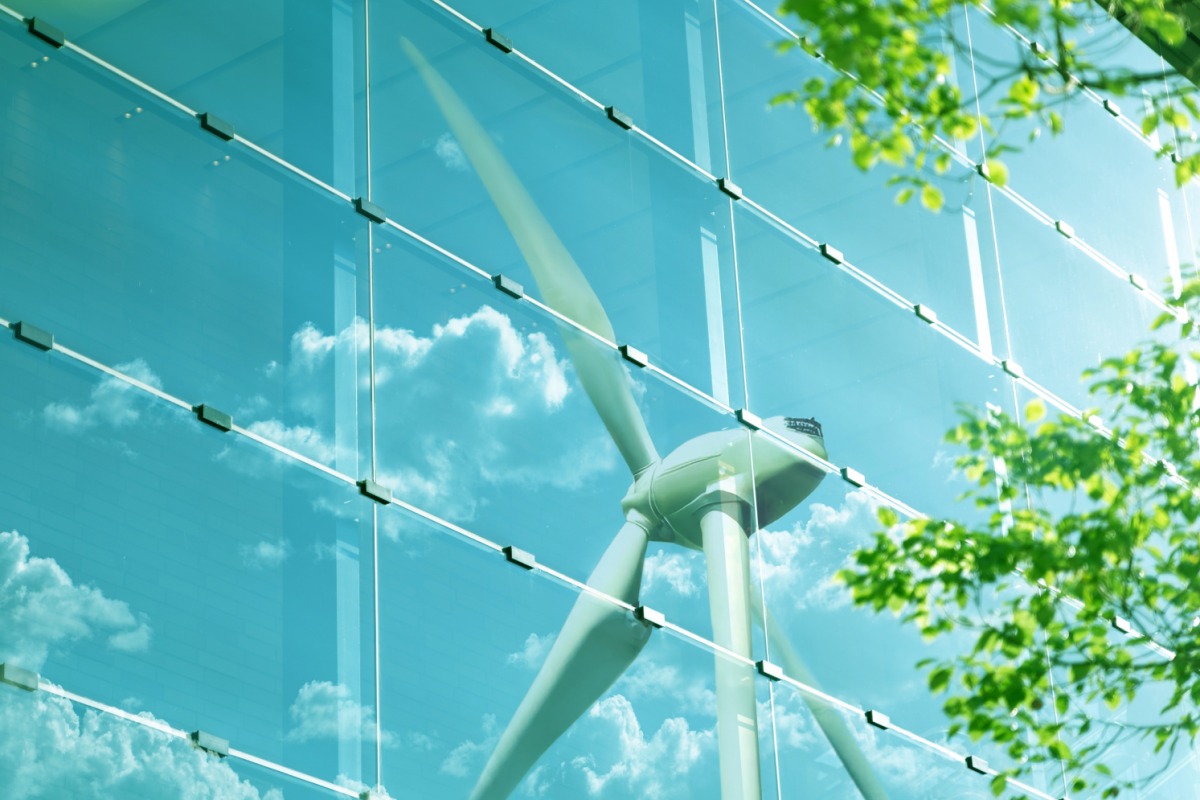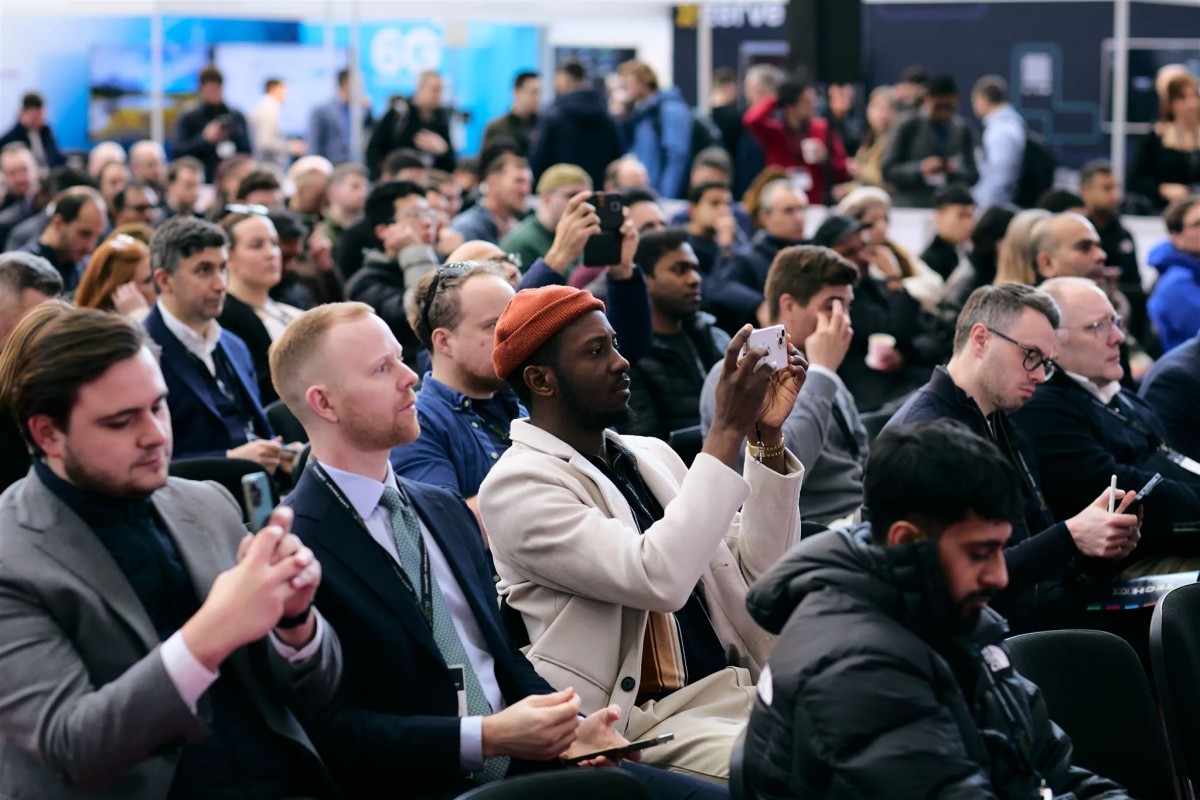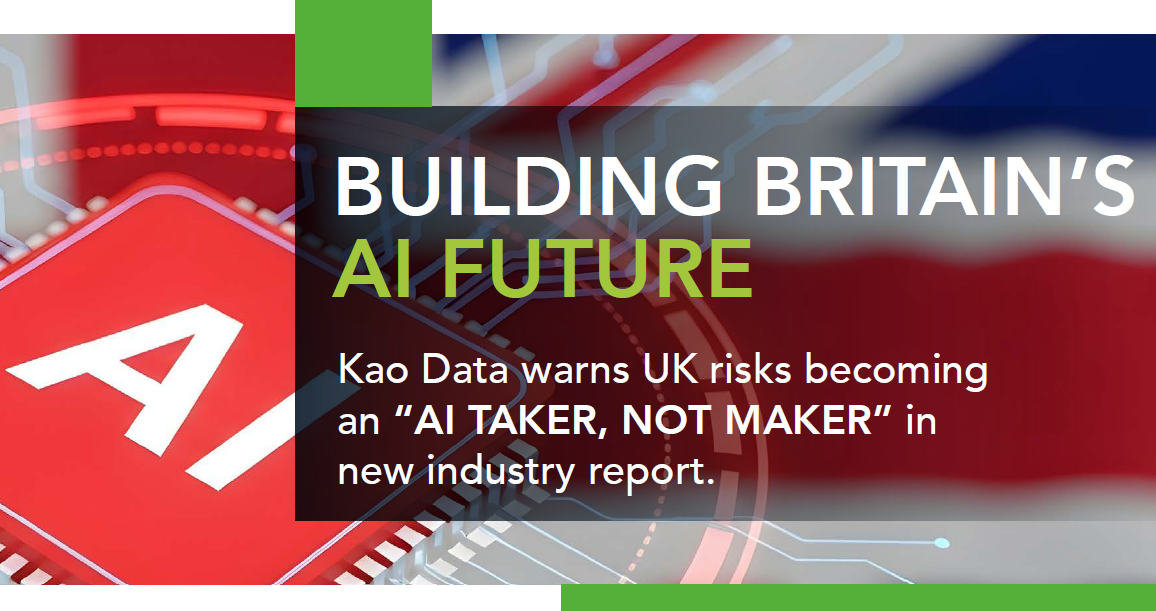Data Centre Build News & Insights
Data Centre Build News & Insights
Data Centre Business News and Industry Trends
Data Centre Projects: Infrastructure Builds, Innovations & Updates
Insights into Data Centre Investment & Market Growth
HUMAIN, AirTrunk to build DCs in Saudi Arabia
AI company HUMAIN and hyperscale data centre operator AirTrunk have agreed a strategic partnership to develop data centres in Saudi Arabia, including an initial project valued at around $3 billion (£2.2 billion) for a new campus in the country.
HUMAIN is headquartered in Saudi Arabia and focuses on artificial intelligence capability development, while AirTrunk operates hyperscale data centre platforms across Asia Pacific. HUMAIN is owned by the Public Investment Fund, and AirTrunk is backed by Blackstone and the Canada Pension Plan Investment Board.
The companies say the partnership is intended to support Saudi Arabia’s ambitions to expand its digital infrastructure and position itself as a regional technology hub.
According to the organisations, the joint initiative aims to combine local AI and infrastructure expertise with international hyperscale data centre deployment experience.
Industry comments
Tareq Amin, Chief Executive Officer of HUMAIN, says, “Together with AirTrunk and Blackstone, HUMAIN is strengthening the technological infrastructure that underpins the Kingdom’s digital economy.
"This partnership marks a pivotal moment in creating scalable, secure, and sustainable data centre capacity to support the rapid growth of AI and cloud computing. This initiative not only accelerates Saudi Arabia’s technological advancement, but also establishes a platform for long-term economic diversification and global competitiveness.”
Robin Khuda, founder and Chief Executive Officer of AirTrunk, says, “Our strategic partnership with HUMAIN, a key player in the region, will support Saudi Arabia to realise its vision of being a data- and AI-driven economy.
"We’re bringing together the whole digital ecosystem, combining HUMAIN’s end-to-end AI capabilities, from infrastructure to models, with AirTrunk’s hyperscale data centre capabilities. This announcement strengthens the AirTrunk data centre platform as we deliver world-class digital infrastructure for the cloud and AI across the Asia Pacific and now the Middle East, which is one of the fastest growing regions in the world.”
Stephen A Schwarzman, Chair, Chief Executive Officer, and co-founder of Blackstone, says, “We are thrilled to help power this next era of innovation in the Middle East and enable AirTrunk’s expansion in this important region.
"The AI revolution continues to be one of Blackstone’s highest conviction themes, and we bring scale and expertise across the ecosystem as the largest provider of data centres globally and a significant investor in related services and infrastructure."
Long-term development and investment focus
The partnership is expected to cover the design, construction, financing, and operation of large-scale facilities in Saudi Arabia.
HUMAIN says it will lead national efforts to deliver AI-ready infrastructure, while AirTrunk and Blackstone will focus on development and investment.
Areas of collaboration include attracting cloud service providers and enterprise customers to the sites.
A talent development focus is also planned, with training and capability-building programmes intended to support local workforce growth in the sector.
According to the companies, the partnership aligns with the Kingdom’s plans to build a digital economy, expand local skills, and accelerate AI infrastructure deployment.
For more from AirTrunk, click here.
Joe Peck - 6 November 2025
Data Centre Build News & Insights
Data Centre Projects: Infrastructure Builds, Innovations & Updates
Data Centres
News
Colt DCS to expand West London hyperscale campus
Colt Data Centre Services (Colt DCS), a global provider of AI, hyperscale, and large enterprise data centres, has announced that it has received committee approval (Resolution to Grant) from Hillingdon Council to expand its Hayes Digital Park campus in West London with three new hyperscale data centres and an Innovation Hub.
The £2.5 billion investment will strengthen the UK’s digital infrastructure, support the government’s modern industrial strategy, and help drive the nation’s growing AI economy.
The three new hyperscale data centres - London 6, 7, and 8 - will be powered using 100% renewable energy through a Power Purchase Agreement (PPA). Power contracts for this development have been secured with National Grid and a high voltage supply is due to be delivered by October 2027. The expansion will add an additional 97MW to the available IT power at the Hayes Digital Park, taking the total capacity to 160MW. Construction is expected to start in mid-2026, with the first data centre (London 6) scheduled to go live in early 2029. Once operational, the new facilities will create over 500 permanent jobs, training more than 50 technical apprentices over a 10-year build programme.
In addition to the data centres, Colt DCS will develop an Innovation Hub in partnership with Brunel University, designed to serve as a community space and incubator for digital start-ups. The hub will promote economic synergy by co-locating light-industrial and digital innovation businesses, creating opportunities for collaboration, research, and skills development within an affordable workspace. Students from Brunel University will be encouraged to use the hub to develop entrepreneurial projects and technology-led ventures to support the digital economy.
AECOM has been appointed to develop the design proposals for the Innovation Hub. The facility aims to act as a base for innovation and community engagement, with flexible space for future industrial use, in line with planning policy for Strategic Industrial Land. It will also provide social value by hosting local events themed around culture, food, film, music, and literature.
The new development will also deliver a district heating network, using waste heat from the data centres to support local businesses, communities, and residential buildings. Under the planning permission, back-up generators will only be permitted to operate for a maximum of 15 hours per year, with the data centres powered directly from the national grid.
“This announcement marks another important milestone for the UK’s digital economy,” says Xavier Matagne, Chief Real Estate Officer at Colt DCS. “Data centres are a cornerstone of digital transformation. With this expansion, we can help power innovation, support the AI revolution, and contribute to the energy transition.”
Xavier continues, “Our new campus in Hayes, including the Innovation Hub in partnership with Brunel University, will drive community value, from reusing heat for district heating to creating jobs, skills, and long-term investment. As one of the few operators capable of delivering new capacity in this area of London over the next decade, we’re proud to be helping power the UK’s future economy in a sustainable and inclusive way.”
Cllr Steve Tuckwell, Hillingdon Council's Cabinet Member for Planning, Housing and Growth, notes, "Hillingdon is open for business, and we're working closely with our business community, new and existing investors and partners to drive innovation and development in the right places.
"The innovation hub is an exciting new development that will help to foster economic growth. It will help to equip residents and smaller local businesses with the right skills, affordable workspaces, and opportunities to thrive.
"Hayes is playing a leading role in shaping London's digital economy and infrastructure and it's vital local people have more opportunities to experience the benefits."
For more from Colt DCS, click here.
Simon Rowley - 5 November 2025
Artificial Intelligence in Data Centre Operations
Data Centre Architecture Insights & Best Practices
Data Centre Build News & Insights
Data Centre Operations: Optimising Infrastructure for Performance and Reliability
America’s AI revolution needs the right infrastructure
In this article, Ivo Ivanov, CEO of DE-CIX, argues his case for why America’s AI revolution won’t happen without the right kind of infrastructure:
Boom or bust
Artificial intelligence might well be the defining technology of our time, but its future rests on something much less tangible hiding beneath the surface: latency.
Every AI service, whether training models across distributed GPU-as-a-Service communities or running inference close to end users, depends on how fast, how securely, and how cost-effectively data can move.
Network latency is simply the delay in the speed of traffic transmission caused by the distance the data needs to travel: the lower latency is (i.e. the faster the transmission), the better the performance of everything from autonomous vehicles to the applications we carry in our pockets.
There’s always been a trend of technology applications outpacing network capabilities, but we’re feeling it more acutely now due to the sheer pace of AI growth. Depending on where you were in 2012, the average latency for the top 20 applications could be up to or more than 200 milliseconds. Today, there’s virtually no application in the top 100 that would function effectively with that kind of latency. That’s why internet exchanges (IXs) have begun to dominate the conversation.
An IX is like an airport for data. Just as an airport coordinates the safe landing and departure of dozens of airlines, allowing them to exchange passengers and cargo seamlessly, an IX brings together networks, clouds, and content platforms to seamlessly exchange traffic. The result is faster connections, lower latency, greater efficiency, and a smoother journey for every digital service that depends on it.
Deploying these IXs creates what is known as “data gravity”, a magnetic pull that draws in networks, content, and investment. Once this gravity takes hold, ecosystems begin to grow on their own, localising data and services, reducing latency, and fuelling economic growth.
I recently spoke about this at a first-of-its-kind regional AI connectivity summit, The future of AI connectivity in Kansas & beyond, hosted at the Wichita State University (WSU) in Kansas, USA. It was the perfect location - given that WSU is the planned site of a new carrier-neutral IX - and the start of a much bigger plan to roll out IXs across university campuses nationwide. Discussions at the summit reflected a growing recognition that America’s AI economy cannot depend solely on coastal hubs or isolated mega-data centres. If AI is to deliver value across all parts of the economy, from aerospace and healthcare to finance and education, it needs a distributed, resilient, and secure interconnection layer reaching deep into the heartland. What is beginning in Wichita is part of a much bigger picture: building the kind of digital infrastructure that will allow AI to flourish.
Networking changed the game, but AI is changing the rules
For all its potential, AI’s crowning achievement so far might be the wakeup call it’s given us. It has magnified every weakness in today’s networks.
Training up models requires immense compute power. Finding the data centre space for this can be a challenge, but new data transport protocols are meaning that AI processing could, in the future, be spread across multiple data centre facilities. Meanwhile, inference - and especially multi-AI agentive inference - demands ultra-low latency, as AI services interact with systems, people, and businesses in real time. But for both of these scenarios, the efficiency and speed of the network is key. If the network cannot keep pace (if data needs to travel too far), these applications become too slow to be useful. That’s why the next breakthrough in AI won’t be in bigger or better models, but in the infrastructure that connects them all. By bringing networks, clouds, and enterprises together on a neutral platform, an IX makes it possible to aggregate GPU resources across locations, create agile GPU-as-a-Service communities, and deliver real-time inference with the best performance and highest level of security.
AI changes the geography of networking too. Instead of relying only on mega-hubs in key locations, we need interconnection spokes that reach into every region where people live, work, and innovate. Otherwise, businesses in the middle of the country face the “tromboning effect”, where their data detours hundreds of miles to another city to be exchanged and processed before returning a result - adding latency, raising costs, and weakening performance. We need to make these distances shorter, reduce path complexity, and allow data to move freely and securely between every player in the network chain. That’s how AI is rewriting the rulebook; latency, underpinned by distance and geography, matters more than ever.
Building ecosystems and 'data gravity'
When we establish an IX, we’re doing more than just connecting networks; we’re forging the embers of a future-proof ecosystem. I’ve seen this happen countless times. The moment a neutral (meaning data centre and carrier neutral) exchange is in place, it becomes a magnet that draws in networks, content providers, data centres, and investors. The pull of “data gravity” transforms a market from being dependent on distant hubs into a self-sustaining digital environment. What may look like a small step - a handful of networks exchanging traffic locally - very quickly becomes an accelerant for rapid growth.
Dubai is one of the clearest examples. When we opened our first international platform there in 2012, 90% of the content used in the region was hosted outside of the Middle East, with latency above 200 milliseconds. A decade later, 90% of that content is localised within the region and latency has dropped to just three milliseconds. This was a direct result of the gravity created by the exchange, pulling more and more stakeholders into the ecosystem. For AI, that localisation isn’t just beneficial; it’s also essential. Training and inference both depend on data being closer to where it is needed. Without the gravity of an IX, content and compute remain scattered and far away, and performance suffers. With it, however, entire regions can unlock the kind of digital transformation that AI demands.
The American challenge
There was a time when connectivity infrastructure was dominated by a handful of incumbents, but that time has long since passed. Building AI-ready infrastructure isn’t something that one organisation or sector can do alone. Everywhere that has succeeded in building an AI-ready network environment has done so through partnerships - between data centre, network, and IX operators, alongside policy makers, technology providers, universities, and - of course - the business community itself. When those pieces of the puzzle are assembled together, the result is a healthy ecosystem that benefits everyone.
This collaborative model, like the one envisaged at the IX in WSU, is exactly what the US needs if it is to realise the full potential of AI. Too much of America’s digital economy still depends on coastal hubs, while the centre of the country is underserved. That means businesses in aerospace, healthcare, finance, and education - many of which are based deep in the US heartland - must rely on services delivered from other states and regions, and that isn’t sustainable when it comes to AI. To solve this, we need a distributed layer of interconnection that extends across the entire nation. Only then can we create a truly digital America where every city has access to the same secure, high-performance infrastructure required to power its AI-driven future.
For more from DE-CIX, click here.
Joe Peck - 5 November 2025
Data Centre Build News & Insights
News
Renewables and Energy: Infrastructure Builds Driving Sustainable Power
Sustainable Infrastructure: Building Resilient, Low-Carbon Projects
Sabey achieves 25% carbon emissions cut
Sabey Data Centers, a data centre developer, owner, and operator, has announced a 25.2% reduction in Scope 1 and Scope 2 carbon emissions from a 2018 baseline, even as electrical load under management has continued growth in the same interval.
The company’s 2024 Sustainability Report details progress in environmental performance, technology innovation, and clean energy partnerships intended to rival the global data centre sector.
2024 report highlights
The 2024 report shares data on Sabey’s emissions reductions, energy efficiency improvements, and external partnerships.
The company says it continues to align its emissions reductions with its science-based targets and is working to achieve net-zero carbon emissions across Scope 1 and Scope 2 by 2029.
Key developments from the report include:
· Carbon emissions slashed 25.2% from 2018 baseline· Pioneering MOU with TerraPower to explore integrating next-generation nuclear energy· Nine buildings earn ENERGY STAR certification with scores over 90; five receive a score of 99/100
Clear path to net zero
The report outlines the steps Sabey is taking to meet its net-zero goal. These include continued investment in carbon-free energy, improving building operations to reduce energy use, reducing emissions from HVAC and fuel sources, and helping customers better understand their own energy footprints.
Casey Mason, Senior Energy & Sustainability Manager, says, “Data centres are the backbone of the digital economy and [the] AI revolution, but must become stewards of global decarbonisation.
“We are not just on track for net zero by 2029; we're reimagining how critical digital infrastructure can be both scalable and sustainable for the world’s fastest-growing industries.
"Our work with TerraPower, local utilities, and SBTi showcases the kind of bold collaboration needed for a climate-secure future.”
In alignment with the Greenhouse Gas Protocol, Sabey reports on emissions and sustainability efforts annually, engaging with external organisations in the process, including CDP, GRESB, EcoVadis, Atrius, and data centre tenants.
The company’s emissions reporting includes both location-based and market-based accounting methods.
For more from Sabey, click here.
Joe Peck - 31 October 2025
Data Centre Build News & Insights
Data Centre Business News and Industry Trends
Data Centre Projects: Infrastructure Builds, Innovations & Updates
Insights into Data Centre Investment & Market Growth
Equinix announces £3.9 billion UK data centre investment
Digital infrastructure company Equinix has acquired an 85-acre site in Hertfordshire, where it plans to develop a large-scale data centre campus.
The company says it intends to invest £3.9 billion in the project, which is expected to deliver more than 250 MW of compute capacity.
According to Equinix, the campus will support both domestic and international organisations across sectors including healthcare, life sciences, public services, financial services, manufacturing, and entertainment.
The development is also referenced by the company as part of broader ambitions around sovereign AI capability in the UK.
The site, previously known as DC01UK, is expected to create around 2,500 construction jobs and, once operational, more than 200 permanent roles. KPMG estimates that direct and indirect employment could generate roughly £120 million in wages.
KPMG analysis also suggests the project could contribute up to £3 billion in annual Gross Value Added during construction, and up to £260 million once operational, reflecting supply-chain activity and wage spending.
DC01UK, commenting on the sale of its site to Equinix, states, "The deal represents one of the largest infrastructure and real estate transactions in the world in recent years. This milestone transaction marks a defining moment for UK digital infrastructure.
"With a projected total investment value in the region of £3.9 billion, the deal lays the foundation for one of Europe’s largest and most advanced data centre campuses - a project of unprecedented scale and ambition that will drive the next wave of cloud and AI innovation."
Economic and community impact
Equinix says it intends to work with local organisations on education, skills, and environmental programmes linked to the development.
The company notes it has operated data centres for 27 years and currently runs more than 270 facilities across six continents. In the UK, Equinix supports over 1,300 customers and employs more than 1,200 people.
James Tyler, UK Managing Director at Equinix, says, “The UK is a cornerstone of the global economy and is a natural home for our most substantial investment in Europe to date. This development brings a significant amount of data centre capacity to Britain, contributing to the government’s AI growth ambition.
"But this investment goes far beyond building the infrastructure needed to unlock the UK’s digital potential; it’s the evolution of an ongoing partnership with the local and national community.”
Liz Kendall, Secretary of State for Science, Innovation, and Technology, comments, “This £3.9 billion investment is a huge win for Britain. It will give businesses - from life sciences to high street banks - the ability to connect to thousands of other businesses across the world in an instant, powering our AI ambitions, boosting growth and creating hundreds of well-paid jobs.
"This is about making sure the UK is at the forefront of the digital revolution and ensuring that every community benefits from the opportunities this new technology brings.”
Luisa Cardani, Head of Data Centres at techUK, adds, “This announcement reflects the scale of opportunity the UK has to strengthen its digital foundations.
"As highlighted in our Foundations for the Future report, data centres are the backbone of our economy: they enable innovation, productivity, and growth across every sector.
"Continued investment in sustainable, resilient digital infrastructure will be critical to delivering on the UK’s ambitions for AI and long-term economic prosperity.”
Sustainability measures and site plans
The company states that all its sites in Europe, including the UK, are powered by 100% renewable energy, and it is targeting global coverage by 2030.
At the Hertfordshire campus, Equinix plans to use dry-cooling technology, to retain more than half the land as open space, and to create ecological habitats to achieve at least a 10% biodiversity net gain.
Equinix also says the campus will be designed to enable heat reuse for local benefit in the future.
The company’s existing UK presence includes 14 data centres, which support UK-based and global customers, and heat export capability across sites.
For more from Equinix, click here.
Joe Peck - 30 October 2025
Data Centre Build News & Insights
Data Centre Business News and Industry Trends
Data Centre Projects: Infrastructure Builds, Innovations & Updates
Insights into Data Centre Investment & Market Growth
Data centre spending to quadruple by 2029 across UK
Spending on new data centres across Britain is set to reach an incredible £10 billion per year by 2029, according to new analysis by construction data experts Barbour ABI.
That is more than four times as much as the current £1.75 billion being spent per annum.
Atop this, the report states that, as investors seek cheaper land costs and cooler climates, the data centre drive will spread north - away from just London - and into Wales.
Nearly 100 data centres are currently in planning, with strong growth driven by demand from AI technologies and the internet of things (IoT).
The impact of this rapid growth
“With exponential growth of this kind, sustainability must be at the forefront of industry strategy if we are to avoid an environmental disaster,” notes Ed Griffiths, Head of Business and Client Analytics at Barbour ABI.
“Data centres are now recognised as Critical National Infrastructure (CNI). However, given the immense power they consume, operators will come under growing pressure to adopt greener practices.
“While many firms are pledging to use 100% renewable energy and implement energy-efficient technologies, there is currently no requirement to report energy usage publicly, so it will be difficult to hold them to account.”
As the need for data processing accelerates, the market is forecast to attract over £25 billion in inward investment over the next five years, according to Barbour’s latest data centre construction market report.
This surge in capital is reshaping the data centre construction landscape, with a rapid pipeline of new developments already underway.
Hyperscale facilities outside of urban areas
Growth is being supported by government initiatives such as 'AI Growth Zones', which aim to streamline the planning process and support the delivery of new infrastructure.
“The impact of AI is one of the most significant trends shaping the future of the data centre industry,” continues Ed. “As AI technologies become integrated into daily operations, the need for high-performance data centres is becoming critical.
"Operators are investing in hyperscale facilities outside of urban areas, designed to manage immense computing workloads.”
While London and the Southeast have traditionally dominated the sector, data centre development is now expanding nationwide. Barbour ABI found that regions such as the Northeast, East of England, and Wales are becoming increasingly attractive for new projects.
This shift is being driven by greater land availability, lower costs, cooler climates, access to renewable energy, and targeted regional growth policies.
The UK’s largest planned data centre project is located at Northumberland Energy Park in Blyth. Backed by US asset management firm Blackstone, the development is expected to be worth £10 billion.
Whilst the sector seems ripe for investors looking for big wins in the next few years, Ed does add a note of caution, stating, “While the headline story for data centres is one of growth and innovation, the industry faces real challenges.
"Rising energy costs, constraints on supply and land, planning barriers, and a shortage of skilled labour could all affect the pace of expansion.”
Joe Peck - 29 October 2025
Data Centre Build News & Insights
News
Sustainable Infrastructure: Building Resilient, Low-Carbon Projects
nLighten reports first ICFEn scores for UK, Germany, Spain
nLighten, a European data centre operator, has announced the first Integrated Carbon-Free Energy (ICFEn) scores for its data centres in the United Kingdom, Germany, and Spain, something the company considers a significant step in how environmental performance is measured within the sector.
Developed in collaboration with the Fondazione Eni Enrico Mattei (FEEM), nLighten says the ICFEn framework introduces a more comprehensive approach to sustainability reporting by assessing hourly carbon-free energy matching, heat recovery, and contributions to grid stability.
Unlike traditional metrics that rely on annual averages or focus solely on energy consumption, the company notes that ICFEn provides real-time insights into how facilities contribute to decarbonisation through energy reuse and system integration.
A new framework for transparent environmental reporting
The ICFEn model builds upon the 24/7 Carbon-Free Energy concept by including three key elements: hourly renewable electricity matching, heat recovery, and grid stabilisation.
This combined methodology aligns with the EU Energy Efficiency Directive, as well as sustainability standards such as the Greenhouse Gas (GHG) Protocol and the Science Based Targets initiative.
Chad McCarthy, Chief Technology Officer at nLighten, comments, “Traditional sustainability metrics have focused on the data centre’s electrical energy profile, but ICFEn integrates the data centre into a community energy system, accounting for both consumption and contribution.
"By including heat recovery and real-time renewable energy matching, we’re offering customers and stakeholders unprecedented transparency about our environmental impact, hour by hour, not just as year-end averages.”
nLighten’s facilities in the UK, Germany, and Spain achieved good ICFEn scores through renewable power purchase agreements and heat recovery initiatives.
Its UK data centres recorded an ICFEn score of 94.61%, higher than the regional carbon-free energy grid average of 56.47%.
The company achieves hourly renewable energy matching by integrating renewable assets into its portfolio and aligning their production with operational demand in real time. This aims to ensure that data centres are powered by clean energy when it is actively being consumed.
Francesco Marasco, Vice President of Energy Operations and Sustainability at nLighten, adds, “We’re not just measuring renewable energy consumption, but quantifying environmental improvement through sustainable projects, for which we share the calculation method transparently.
"The ICFEn methodology allows us to demonstrate measurable, system-wide benefits that lower community emissions. We encourage other operators to adopt this framework, as raising awareness of data centres’ environmental contributions benefits the wider sector.”
Encouraging wider adoption
nLighten has made the ICFEn methodology publicly available under a Creative Commons licence to encourage industry-wide adoption.
The framework’s release coincides with updates to the GHG Protocol, which are expected to introduce hourly-based renewable energy reporting requirements.
The company plans to extend ICFEn reporting to all European sites and introduce third-party verification of hourly energy and heat recovery data as part of its next phase of implementation.
For more from nLighten, click here.
Joe Peck - 27 October 2025
Data Centre Build News & Insights
Data Centre Projects: Infrastructure Builds, Innovations & Updates
Events
Sponsored
Data Centre Congress Global returns in 2026
Data Centre Expo Global is set to return to Olympia London on 4–5 February 2026, bringing together global leaders and innovators from across the digital infrastructure ecosystem to explore the future of green data, intelligent investment, and resilient physical infrastructure.
Driving sustainable growth through innovation and investment
Under this year’s themes of green investment, digital innovation, and physical infrastructure, the programme will spotlight how operators are redefining the foundations of data centres.
Expect deep explorations of decarbonisation strategies, circular and modular design, grid integration, advanced cooling, power systems innovation, and sustainable site planning.
Sessions will also examine how digital innovation is reshaping infrastructure, from AI-driven operations, automation, and control systems to next-generation materials, software-defined infrastructure, and data centre architectures that flex with demand and resilience requirements.
Hyperscale, edge, and ensuring infrastructure resilience
On the day two track, speakers will explore how hyperscale and edge infrastructures must evolve to serve a distributed, latency-sensitive, resilient future.
Topics include data sovereignty, resilient connectivity, distributed compute, AI orchestration, fault tolerance, and hybrid edge-cloud architectures.
The focus will remain squarely on designing systems that sustain performance under evolving stressors and threats.
Hear from leading voices in digital infrastructure
Attendees will gain first-hand insight from distinguished industry leaders, including:
● Elena Rehman, EMEA Head for Data Center Land Development, Microsoft● Kenneth Dalton, Operations Director, Global Switch● Vladimir Prodanovic, Principal Product Manager, NVIDIA● Susanna Kass, Data Center Advisor (UNSDG-EP)● Wilfried Dudink, Senior Director, Strategy & Development, Digital Realty● Joe Hurman, Principal Consultant, STL Partners● Steve Hone, CEO and co-founder, DCA (Data Centre Alliance)● Venessa Moffat, Advisory Board Member, DCA
These experts will share case studies, forecasts, technical deep dives, and actionable guidance to help decision-makers across data centre and infrastructure industries.
A hub for cross-domain collaboration
Co-located with Cyber Security & Cloud Expo, AI & Big Data Expo, IoT Tech Expo, Digital Transformation Week, Cloud Transformation Conference, Edge Computing Expo and the Intelligent Automation Conference, the Expo will offer delegates exposure to the full spectrum of digital infrastructure trends and challenges.
This integrated environment aims to foster "serendipitous connections and cross-industry innovation."
Nearly 8,000 attendees, 150 exhibitors, and over 200 speakers are expected to convene in London to chart the course of next-generation infrastructure. To be a part of it, you can review the full agenda, explore the speaker list, or register for a free or 'Gold' pass by visiting the event's website.
Joe Peck - 24 October 2025
Data Centre Architecture Insights & Best Practices
Data Centre Build News & Insights
Data Centre Security: Protecting Infrastructure from Physical and Cyber Threats
News
Security Risk Management for Data Centre Infrastructure
AWS outage sparks call for resilient DC strategies
This Monday’s Amazon Web Services (AWS) outage demonstrates the importance of investing in resilient data centre strategies, according to maintenance specialists Arfon Engineering.
The worldwide outage saw millions unable to access popular apps and websites - including Alexa, Snapchat, and Reddit - after a Domain Name System (DNS) error took down the major AWS data centre site in Virginia.
With hundreds of platforms down for over eight hours, it was the largest internet disruption since a CrowdStrike update caused a global IT meltdown last year.
The financial impact of the crash is expected to reach into the hundreds of billions, while the potential reputational damage could be even more severe in the long run.
A preventable disaster
Although not caused by a lack of maintenance or physical malfunction of equipment and building services, the consequences of the downtime do reflect an opportunity for operators to adopt predictive maintenance strategies.
Alice Oakes, Service and Support Manager at Arfon, comments, “The chaos brought by Monday’s outage shows the sheer damage that can be caused by something as simple servers going down.
"While it might’ve been unavoidable, this is certainly not the case for downtime caused by equipment failures and reactive maintenance.
“This is where predictive maintenance can make a real difference; it's more resilient, cost-effective, and environmentally responsible than typical reactive or preventative approaches, presenting operators with the chance to stay ahead of potential issues.”
Predictive maintenance strategies incorporate condition-based monitoring (CBM), which uses real-time data to assess equipment health and forecast potential failures well in advance.
This enables informed and proactive maintenance decisions before the point of downtime, eliminating unnecessary interventions and extending asset life in the process.
CBM also reduces the frequency of unnecessary replacements, contributing to lower carbon emissions and reduced energy consumption in a sector under scrutiny for its environmental impact.
Alice continues, “This incident is a timely reminder that resilience should be built into every layer of data centre infrastructure, especially the physical equipment powering them.
"With billions set to be invested in UK data centres over the coming years, operators have a golden opportunity to future-proof their facilities.
“Predictive maintenance should be cornerstone of both new-build and retrofit facilities to adapt to ensure continuity in a sector where downtime simply isn’t an option.”
Joe Peck - 24 October 2025
Artificial Intelligence in Data Centre Operations
Data Centre Build News & Insights
Data Centre Operations: Optimising Infrastructure for Performance and Reliability
Kao Data unveils blueprint to accelerate UK AI ambitions
Kao Data, a specialist developer and operator of data centres engineered for AI and advanced computing, has released a strategic report charting a clear path to accelerate the UK's AI ambitions in support of the UK Government's AI Opportunities Action Plan.
The report, AI Taking, Not Making, delivers practical recommendations to bridge the gap between government and industry - helping organisations to capitalise on the recent £31 billion in commitments from leading US technology firms including Microsoft, Google, NVIDIA, OpenAI, and CoreWeave, and highlighting key pitfalls which could prevent them from materialising.
Drawing on Kao Data's expertise in delivering hyperscale-inspired AI infrastructure, the report identifies three strategic pillars which must be addressed for the UK to secure the much-anticipated economic boost from the Government’s Plan for Change. Key areas include energy pricing and grid modernisation, proposed amendments to the UK’s AI copyright laws, and coordinated investment strategies across the country’s energy and data centre infrastructure systems.
"Matt Clifford's AI Opportunities Action Plan has galvanised the industry around a bold vision for Britain's digital future, and the recent investment pledges from global technology leaders signals tremendous confidence in our potential," says Spencer Lamb, MD & CCO of Kao Data. "What's needed now is focused collaboration between industry and government to transform these commitments into world-class infrastructure. Our new report offers a practical roadmap to make this happen - drawing on our experience developing data centres, engineered for AI and advanced computing, and operating those which already power some of the world's most demanding workloads."
The new Kao Data report outlines concrete opportunities for partnership across a series of strategic pillars, including integrating data centres into Energy Intensive Industry (EII) frameworks, implementing zonal power pricing near renewable energy generation and accelerating grid modernisation to unlock the projected 10GW AI opportunity by 2030.
Additionally, the report proposes new measures to evolve UK AI copyright law with a pragmatic approach that protects creative industries whilst ensuring Britain remains a competitive location for the large-scale AI training deployments essential for attracting frontier AI workloads.
Further, the paper shares key considerations to optimise the government's AI Growth Zones (AIGZs), defining benefit structures that create stronger alignment between public infrastructure programmes and the private sector to ensure rapid deployment of sovereign UK AI capacity.
"Britain possesses extraordinary advantages, world-leading research institutions, exceptional engineering talent, and now substantial investment to back the country’s AI ambitions," Spencer continues. "By working in partnership with government, we believe we can transform these strengths into the physical infrastructure that will power the next generation of industrial-scale AI innovations and deliver solutions that position the UK at the forefront of the global AI race."
To download the full report, click here.
For more from Kao Data, click here.
Simon Rowley - 23 October 2025

Head office & Accounts:
Suite 14, 6-8 Revenge Road, Lordswood
Kent ME5 8UD
T: +44 (0)1634 673163
F: +44 (0)1634 673173

